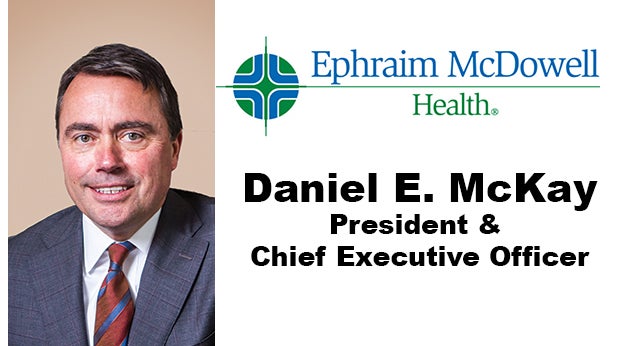It takes a village to prevent child abuse and neglect
Published 3:36 pm Tuesday, October 8, 2019
By ERIC MOUNT
Contributing columnist
Another black eye for our state: We are dead last in the nation for abuse and neglect of children after being among the ten worst for over a decade.
The Courier Journal’s Deborah Yetter zapped me with that news in her five-part series beginning Aug. 18 under the horrific heading “Tortured and Abused,” which highlighted some of the 16 child deaths in 2017. So what is the larger story, and what can be done?
There were also 56 near-deaths in 2017, and we reached an all-time high of 10,000 children in foster care due to abuse and neglect in their homes. There were an unprecedented 17,500 substantiated abuse and neglect reports last year, and 12,250 involved parents struggling with drug and alcohol abuse.
Neglect is much more common than physical abuse, but it too can result in fatalities and near fatalities due to lack of food, supervision, safe housing or medical care.
Reports of suspected abuse and neglect reached 137,000 last year, largely due to drug problems (nearly twice the totals from five years ago). Local experience supports the estimate that substance abuse is a major factor in over half of the removals of children, especially infants and toddlers. In 2017, the estimate statewide was 70%. In Jefferson County, it was 90%.
In 2018, there were 204 abuse/neglect cases in Boyle County and 151 in Mercer. The number for children in out-of-home care per thousand children (ages 0-17) between 2015 and 2017 in Boyle was 67.2. For Mercer, it was 42.4. In both counties those numbers are worse than in 2011-2013.
The actual abuse exceeds the report numbers because of the many unsubstantiated and unreported incidents. There are also report criteria that exclude some cases as abuse/neglect.
A further indicator of the magnitude of the problem is the overload and turnover of case workers. Due to stress, overwork, exhaustion and low pay, case workers last only four years on average. The state target for cases per worker is 18, but the average since 2017 is 30-31.
It is not unusual for a worker to have in the high 80s or even 100 cases. No wonder Kentucky has 500 fewer than in 2007. As the signs we see posted should alert us, there is a shortage of foster homes, although there have been 671 added recently according to a July child welfare report.
A final negative note is that the state child welfare agency has suffered a decade of budget cuts beginning in 2008. The state plans to reduce its spending on child welfare in an effort to improve its adoption and foster care system. What gets short shrift in the process is prevention programs such as drug treatment, parenting classes and counseling. In the fiscal year ending June 30, $410 million of child welfare funds was spent on children in foster care against $15 million on preventive services.
Eric Clarke, Kentucky’s top social service officer, is proposing less expenditure on foster care and more on prevention, and the federal Family First Prevention Services Act, which seeks to help families before the child has to be removed, is due to be launched this month in Kentucky. In March, an act (originally H.B. 2) was signed into law that allows reimbursement for relatives and fictive kin who are caregivers. This change could avoid some of the problems often associated with foster care, but only if these designated caregivers get the needed training and support.
What can be done? There are promising initiatives and proposals, for the most part still awaiting full implementation.
The Yetter series praises the approach and results of Jefferson County’s Family Recovery Court (the new name for family drug courts, which an independent panel has recommended to be reinstated).
This court has as its goal sobriety, celebration of progress, and regaining custody, unlike criminal drug courts where resolving charges is uppermost. The problem is that the just-reopened FRC in Jefferson County is the only one in the state now, and it is funded by private charity.
Jefferson County’s Sen. Morgan McGarvey is proposing that the 2020 legislature both support the Louisville court and add others.
Sobriety Treatment and Recovery Teams (START) focus on new mothers with substance abuse and reduce by half the number of children that end up in foster homes. But only six counties have this.
Kentucky Strengthening Ties and Empowering Parents (KSTEP) focuses on families with children under 10 who are at risk of going to foster homes, and 90% of those involved are able to remain with their families. Unfortunately, only eight counties have this program.
Health Access Nurturing Development Services (HANDS), which is funded through Medicare, focuses on women from the beginning of pregnancy until the child reaches age 2. $1 spent saves $2.22 in foster care, but only 9,000 participate statewide. Boyle does have it!
A group of Boyle County Kentucky Youth Assembly members have recently urged the Kentucky legislature’s Education Committee to advance legislation in the General Assembly to require age-appropriate education on child abuse in our public schools. Since failure to report is a factor in over half of abuse/neglect cases, such a curriculum requirement could really help.
Our local Hope Network is addressing of our epidemic of drug addiction and can make huge inroads into the addiction-affected cases of abuse and neglect. The newly implemented program in the Danville schools to improve access to health (including mental health) care and dental care could also lead to better reporting of abuse and neglect.
Court-Appointed Special Advocates for Abused and Neglected Children (CASA) is having a marked effect on this problem, and more volunteers are needed to get the training and handle more cases.
A broad range of professionals should be crucial contributors — including teachers, health care providers and law enforcement officers. Then there are neighbors and family members and citizens contacting their elected representatives.
It takes the whole community to be a child welfare system, according to our stellar Family Court Judge Bruce Petrie. No single agency or program is the answer. “It takes a village.”
To report abuse, call the state Cabinet for Health and Family Services protection hotline at 1-877-KYSAFE1 or 1-877-597-2331 (toll free).






